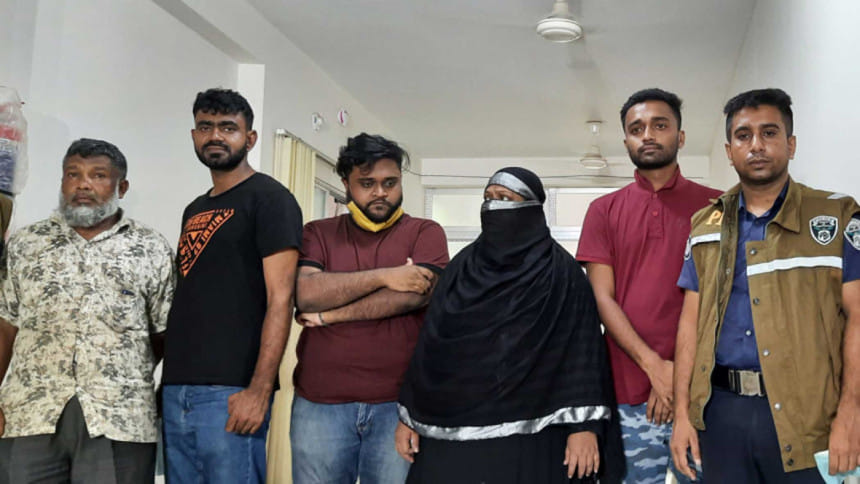Break the vicious cycle of domestic worker abuse

We are shocked to know about the ordeal of a 21-year-old woman who was recently released after being confined and tortured for five years. According to our report, she was sent to a job in Dhaka's Bhatara area—by her aunt—in 2016, where she was supposed to work as a domestic help. Shortly after she went to the house, she was taken hostage by her employers, who turned out to be the members of a gang that forced girls and women into sex work. For five years, she was out of contact with her family members, who—unable to get in touch with her—assumed she had died. It was only about five months ago that her abusers finally set her free, and she found her way to a relative's house at long last.
During her confinement, she suffered unspeakable horrors—torture, rape, being forced into sex work and transferred from house to house. Unfortunately, domestic worker abuse is nothing new in Bangladesh. Many women, often young, are tortured and abused after being recruited as domestic workers. Their families send them away in hopes that their daughters would make an income while working in what they assume are safe environments. But the number of cases of people torturing their domestic helps—many of whom are children—gives us a glimpse of how horrible the situation is.
Bangladesh has the Domestic Worker Protection and Welfare Policy, 2015, but it is hardly implemented. The Labour Act recognises domestic work as a valid profession, but it belongs in the informal sector. Domestic workers are thus deprived of rights and protection, allowing apathetic employers to abuse them and face no consequences. There is little these workers' families can do, given their financial conditions and standing in society. It is only when the abuse leads to devastating consequences—severe physical injuries or death—that the law enforcement gets wind of it. Even then, the victims rarely get justice. For instance, when the family of the abovementioned survivor thought she was dead and filed a case against her employers, the accused were in jail for only six months before getting out on bail.
Now that the young woman, although traumatised to the extreme, is back to safety, and the culprits have again been arrested, we hope that this time the law enforcement will ensure she gets justice, and her abusers are punished accordingly. It is also high time the domestic worker welfare policy was effectively implemented in the country, and the government took some strict and timely steps to protect them from mistreatment and abuse. These cases are a gross violation of human rights. These are mostly women and girls who are forced to move away from their families to earn a living; such abuse against them cannot be left unopposed and unpunished.

 For all latest news, follow The Daily Star's Google News channel.
For all latest news, follow The Daily Star's Google News channel. 



Comments